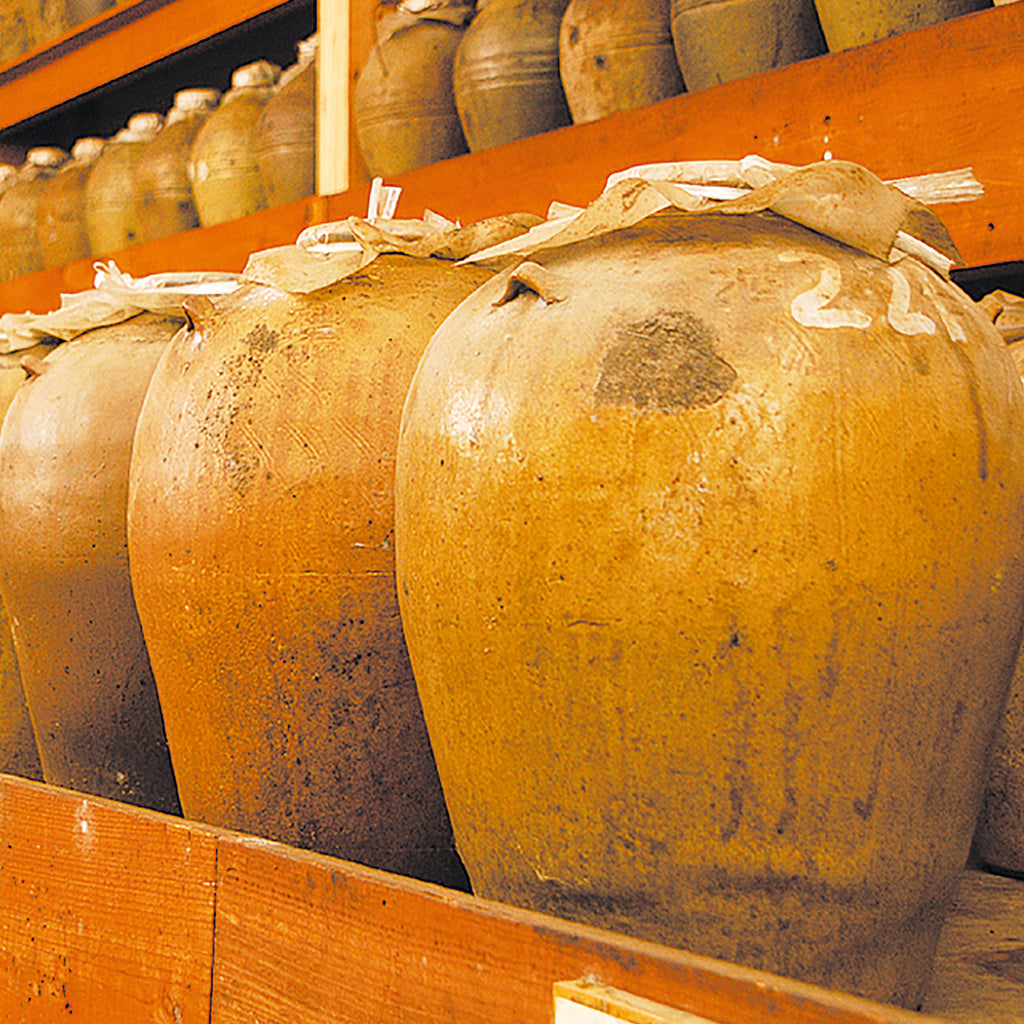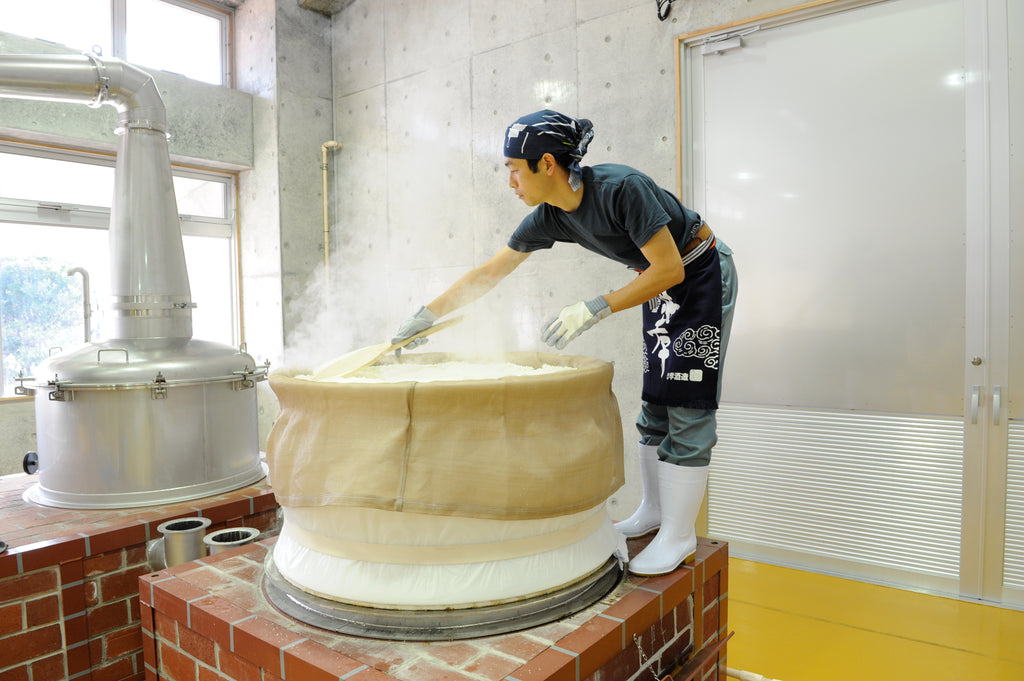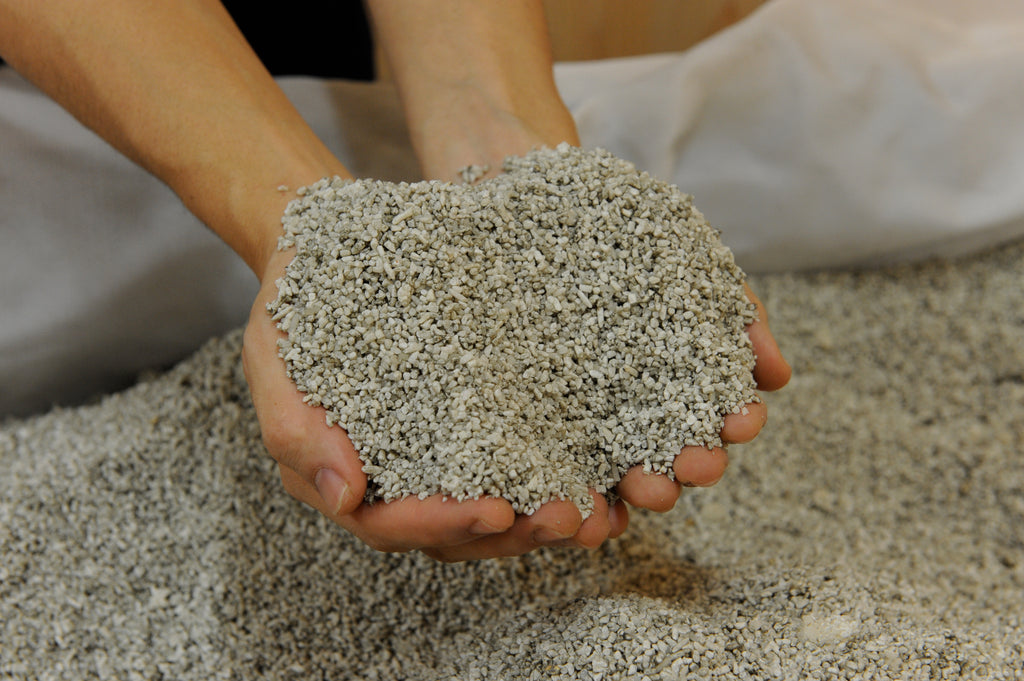
Welcome to our first Awamori Bazaar!
This summer, the awamori will flow through Umami Mart with special events, recipes, and spotlights on our favorite bottles of Okinawa’s beloved beverage. I’m excited to feature two distinctive bottles for this month’s selections that demonstrate the range, depth, and deliciousness of awamori.
At Umami Mart, we call awamori the grandmother of shochu. The history of awamori predates shochu, as the drink was created in the Ryukyu Kingdom (modern day Okinawa) in the 15th century with the discovery of distillation on the islands. Located in the farthest southern reaches of Japan in the East China Sea, the 160 islands of Ryukyu became Okinawa as an annex of Japan in the late 1800s. During WWII, all awamori was destroyed in the bloody Battle of Okinawa; since then, 47 distilleries today are keeping the tradition alive by making what is designated as Ryukyu Awamori.
Awamori must be made with rice and black koji, using zen koji shikomi (100% koji for the moromi), then single distilled. Its method of aging is particularly special, with the result being called kusu. Aged in clay pots for at least three years, there is a tradition of passing down kusu through generations, as a family heirloom. They use an aging method called shitsugi, which works like the Solera method, where old liquor is refilled with newer liquor, which preserves the original blend. I am so excited to feature a unique kusu to you all this month, made with mango yeast!
We have a great event planned for y’all in July for our Awamori Bazaar so stay tuned! Until then, imagine being swept away by the gentle, tropical breezes of Okinawa as you sip on these bottles.
Kanpai,
Kayoko
Co-Founder and Shochu Director
Umami Mart
+++
Mizuho Awamori
Mizuho Shuzo (Naha, Okinawa)
Distilled from 100% Indica rice ABV 20% / Koji: Black / Distillation: Atmospheric
I dare you to open this bottle and not finish it all in one night! What I love about awamori is its unique aroma, thanks to the liberal use of black koji – this bottle exemplifies this greatly with notes of Swiss Miss hot chocolate, rice candy, and butterscotch; yet the palate remains crisp. Mizuho has been making awamori since 1848, “Making koji by hand, brewing and distilling it carefully, and aging it slowly,” said Mr. Akira Nakazato of the company. Drink this on the rocks with many friends, around Korean BBQ or the next backyard smokeout on a hot summer night.

Rice from Thailand at Mizuho

Clay vessels for aging at Mizuho
Chuko Ryukyu Awamori Kusu
Chuko Awamori Distillery (Tomigusuku, Okinawa)
Distilled from 100% Indica rice ABV 43% / Koji: Black / Distillation: Atmospheric / Yeast: Mango / Age: 3 years
Since 1949 Chuko has been making awamori, and what sets them apart today is the on-site kiln used to fire the clay pots for making kusu. In 2007, Chuko discovered the technology to extract yeast from mangos, and have released various renditions of awamori utilizing this yeast. Mr. Yasufumi Tokuda of Chuko said, “Mango yeast does not create a specific flavor, rather it creates 4-Vinyl Guaiacol (4VG), which creates a strong vanilla aroma during the maturation process.” Get fig leaf, Milk Duds, and soy sauce on the nose; enjoy this complex nectar mizuwari (with water) with oysters and steak, or neat in a wine glass for dessert with butter cookies or brownies. It also makes an excellent Martini!
Toji Sohei Inoue at Chuko




Inoue mixing the moromi
 Black koji!
Black koji!
 The still
The still





Comments (0)
There are no comments for this article. Be the first one to leave a message!